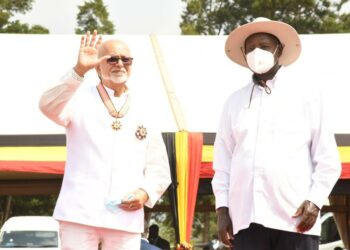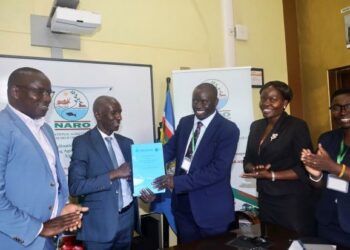A total of 79 per cent of Ugandans think that mobile money services are too expensive compared to three out of 10 (32 per cent) who said the same one year before.
These findings were released by Twaweza in a research brief titled Banking, mobile money and taxes: Ugandans’ experiences of and opinions on mobile money. The brief is based on data from Sauti za Wananchi, Africa’s first nationally representative high-frequency mobile phone survey. The findings are based on data collected from 1,905 respondents across Uganda in November 2018.
The research results coincides with the introduction of excise duty on mobile money transactions.
When asked about the new tax, four out of 10 citizens (41 per cent) are aware of it. Among these, over half (57 per cent) say they have reduced their transactions since the introduction of the tax while fewer (37 per cent) say their transaction volume is unchanged. In addition, seven out of 10 citizens who are aware of the tax (71 per cent) disagree with it.
The findings also reported a drop in the number of mobile money transactions and the increase in the proportion of people who think mobile money is too expensive are particularly significant for financial inclusion. Two out of 10 Ugandans (17 per cent) have a bank account and this number has remained unchanged since 2009. On the other hand, since the introduction of mobile money in 2008, its growth has been exponential to reach three out of four citizens (73 per cent).
Mobile money seems to particularly benefit women and young people, evening out the disparities in these important groups’ access to financial services. Men (23 per cent) are almost twice as likely as women (11 per cent) to have a bank account while women (70 per cent) and men (76 per cent) are almost equally likely to have mobile money accounts. Similarly, young Ugandans age 18 to 24 are much less likely to have a bank account than other age groups (10 per cent versus 20 per cent) but this group are just as likely to have mobile money accounts (74 per cent) as all other age groups except those over 55 who are less likely to have mobile money accounts).
Mobile money, however, does less to address some of the other inequalities that arise in access to bank accounts between the formally and casually employed, the poor and the wealthy, and the educated and the uneducated. For bothbank accounts and mobile money accounts, the formally employed, the wealthy and the educated are more likely to have access.
One of the benefits of increased access to financial services is increased access to credit. Overall three out of 10 have taken a loan in the past year, whether through formal or informal channels. This is largely consistent across demographic groups. Half of those who have borrowed money made use of savings and credit co-operatives whether village savings groups (10 per cent) or SACCOs (6 per cent).
Informal sources such as friends, neighbours or family members are also popular (9 per cent). Among those who have taken a loan, one third say the loan was for training and another third say it was for business.
There is some indication in the data that Ugandans are borrowing to pay for social services not necessarily just to grow their incomes: combining education or training related loans (11 per cent) with medical loans (5 per cent) we can see that more Ugandans borrow money for these purposes than for their businesses (10 per cent). But borrowing from mobile money providers is more common, with half of citizens (53 per cent) saying they have borrowed money or airtime at some point. It is important to note that the data show that more citizens borrow airtime (57 per cent) than money (9 per cent). Among those who borrow from mobile money providers, 14 per cent say they have borrowed from other sources to repay mobile money loans, the same share say they have accumulated larger loans over time and 62 per cent say they are not aware of the interest rates charged on these loans.
Marie Nanyanzi of Sauti za Wananchi at Twaweza, said: “These data tell an important story of how mobile money has boosted financial inclusion particularly among groups that struggle to access formal financial services such as bank accounts. But it seems the consequences of the the tax on these services are now beginning to spread: people are now much more likely to find mobile money services too expensive, say they have reduced their transactions as a result of the tax and overall many disagree with the tax. Although widening the tax base is an important part of Uganda’s progress, the government must ensure careful calculations are done to weigh up the tax collected against the potential for excluding people, particularly more vulnerable groups, as a result of the price changes.”
“In addition,” she continued, “there is an indication that citizens are borrowing to meet social service expenses like unexpected medical costs. This poses a risk of citizens becoming indebted for items that are not targeted toward improving their livelihoods meaning that the debt will be particularly hard to service. At the same time, this access to credit may provide a lifeline for the poor and vulnerable to at least be able to meet these essential expenses while planning for repayment. However, the best option would be to ensure that social services are affordable and accessible to all Ugandans so that no one has to borrow to access them. The government should consider increasing or redirecting budgetary allocations to sectors like health and education to lessen the burden on the citizens.”
Do you have a story in your community or an opinion to share with us: Email us at editorial@watchdoguganda.com











